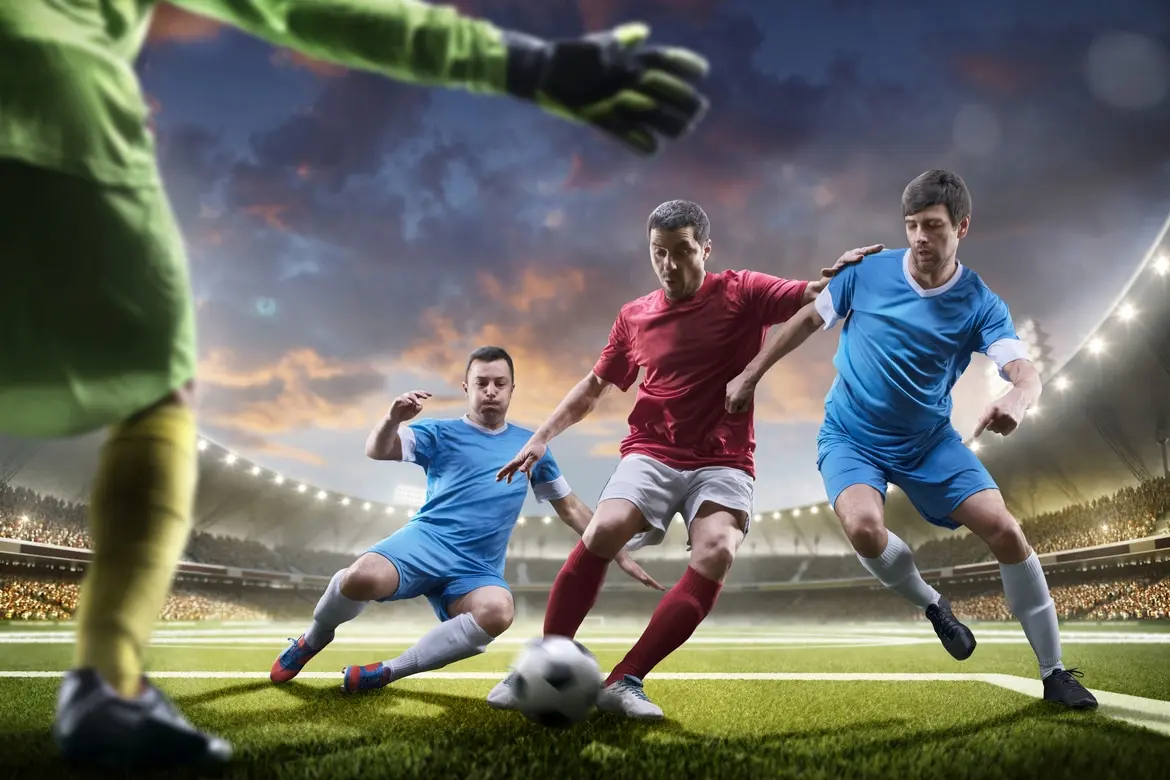Goh Mei Yan Natalie
Dietitian


Source: Shutterstock
Dietitian
On average, a male outfield football player will cover around between 10 – 13km during a match, with a mixture of walking and low-intensity and high-intensity running. That’s a lot of exercise!
So it’s no surprise they need to eat right, before and after a match, to prepare their bodies and to recover properly.
You might not be doing as much running around as the average footballer (or maybe you are!), but regardless, eating right after training is just as important for your body’s recovery.
With the World Cup ongoing, take inspiration from your favourite football players with these nutrition tips.
Did you know that carbohydrates are made up of sugar? Glucose, to be precise, and this is what gives us energy. Any leftover glucose we don’t use for energy is stored in the body as glycogen and fat.
When we exercise, our bodies start to use up these stores and may break some down muscle proteins to give us more energy. Depending on the intensity and duration of exercise, our bodies may also use stored fat for energy. So, it’s no surprise we often feel hungry after a workout – our bodies want us to replenish these glycogen stores and to restore muscle proteins, so we can refuel and recover properly.
To enable your body to do this, sport dietitians may recommend following the 4:1 carbohydrate to protein ratio after exercising. Research shows this is more likely to boost your glycogen stores than just eating carbs by themselves.
Need some ideas on ways to do this? You can create your own ratio-friendly snacks and meals by combining any of the following:
| Quantity | Carbohydrates | Protein | |
|---|---|---|---|
| Non-fat plain yoghurt | 230g | 17g | 13g |
| Blueberries | 100g | 14g | 0.7g |
| Oranges | 100g | 12g | 0.9g |
| Apples | 100g | 14g | 0.3g |
| Bananas | 100g | 23g | 1.1g |
| Almonds | 100g | 22g | 21g |
| Oats | 100g | 66g | 17g |
| Hummus | 100g | 14g | 8g |
| Peanut butter | 100g | 20g | 25g |
| Brown rice | 100g | 23g | 2.6g |
| Wholegrain crackers | 1 | 2.7g | 0.35g |
When you eat does make a difference to your body’s ability to recover and the time it will take to do it. Research shows that eating anytime in the first 30 minutes after your workout is better, as it results in more stored glycogen.
So, if you know it’s going to take you longer than 30 minutes to get home from the gym, make sure you pack a snack to take with you.
It’s not always easy to find the time to prep exercise-friendly snacks and meals like the ones listed above. When you’re in a rush, it’s sometimes easier to grab something quick and go. Of course, you could just reach for a banana and a handful of nuts and seeds, but what if you’re craving something slightly more filling?
Try a drink or smoothie. In fact, these options are often easier to digest and quicker to absorb, which means your body will get the nutrients it needs faster – perfect if you’re trying to make that 30-minute window!
Flavoured milk, surprisingly, is a handy option for this. Not only does it have the right ratio of carbs to protein, but studies have shown it can enhance recovery in sports players faster than regular sports drinks do.
Don’t forget to drink plenty of water. You’ll lose lots through sweat when you’re exercising. If you’re not sure how much you should really be drinking, hop on a scale before and after your workout to measure how much water your body loses. As a general guide, drink 1.5 litres of fluid for every kilogram of weight lost during exercise.
You may benefit from sports drinks for rehydration if you are involved in moderate to high intensity sports of longer duration. Remember not to drink too fast!